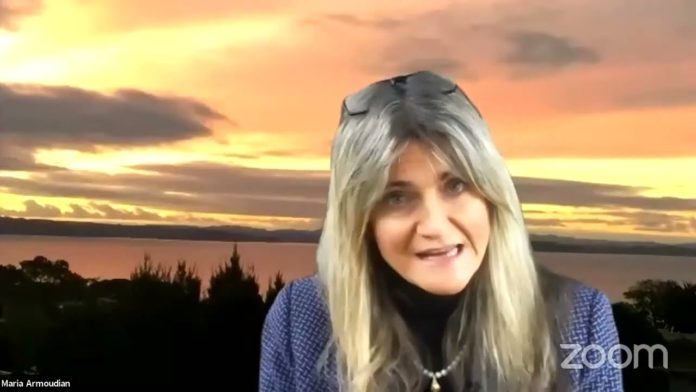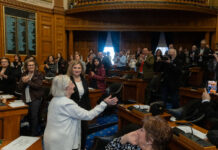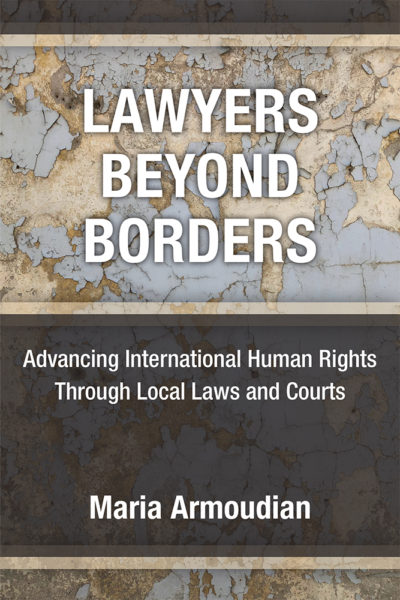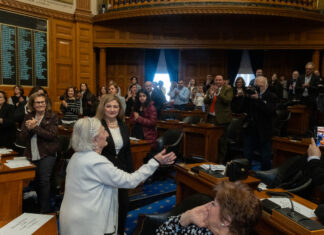AUCKLAND, New Zealand — Journalist, author and professor Maria Armoudian is focusing on ideas and actions in the quest for justice; she knows that one needs plenty of the former to arrive at the latter.
Her latest book, Lawyers Beyond Borders: Advancing International Human Rights through Local Laws and Courts, was released this fall by the University of Michigan Press.
Armoudian’s family history of crossing continents in search of a better life following the Armenian Genocide has led to her current career.
Armoudian, who last month was interviewed via Zoom in her home in Auckland, New Zealand, was born in Oklahoma and raised in Baton Rouge, La. And not just that — her story, like many other Armenians, has seen her family go from historic Armenia to Cyprus and Lebanon, and finally to yet another country, in this case, the US.
Her dad was born in Lebanon, her mother grew up in Cyprus but attended the American University of Beirut. They met and married and her father got a scholarship to Louisiana State University to do a PhD.
She joked, “My brother and I were both born in Baton Rouge, so, we are Cajun Armenians.”











